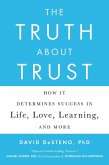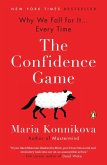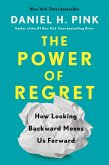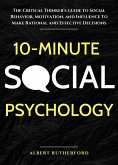"A fresh look at informal communication, and how information spreads rapidly...An absorbing and compelling book." -Daniel J. Levitin, author of This Is Your Brain on Music and The World in Six Songs "Nicholas DiFonzo is one of the world's experts on why rumors spread. If you've ever wondered where rumors come from or whether some new rumor is true, this book will fascinate you." - Chip Heath, coauthor of Made to Stick: Why Some Ideas Survive and Others Die During the 2008 presidential election, both campaigns sought to detect, decipher, and defuse a host of derogatory rumors. After Hurricane Katrina, rumors swirled about stranded residents shooting rescue workers. Tipping off the economic crisis, costly rumors crippled financial institutions as they flew through the stock market. Pyschologist Nicholas DiFonzo has studied hearsay for more than fifteen years, and in this book he shows how the process that gave rise to these troubling rumors is fundamentally the same as a tête-à-tête around the company watercooler. With The Watercooler Effect, you'll learn: *how businesses or campaigns can control destructive rumors *how to sort fact from fiction *why a "no comment" response can be more detrimental than helpful *how an organization can increase trust from within *why rumors can actually become more truthful the more they spread DiFonzo argues that rumors stem from our deeply rooted motivation to make sense of the world and are a window into both individual and group psychology. Using fascinating case studies and surprising research findings, The Watercooler Effect gives you the tools to find the truth behind the rumor.
Dieser Download kann aus rechtlichen Gründen nur mit Rechnungsadresse in A, B, BG, CY, CZ, D, DK, EW, E, FIN, F, GR, HR, H, IRL, I, LT, L, LR, M, NL, PL, P, R, S, SLO, SK ausgeliefert werden.









